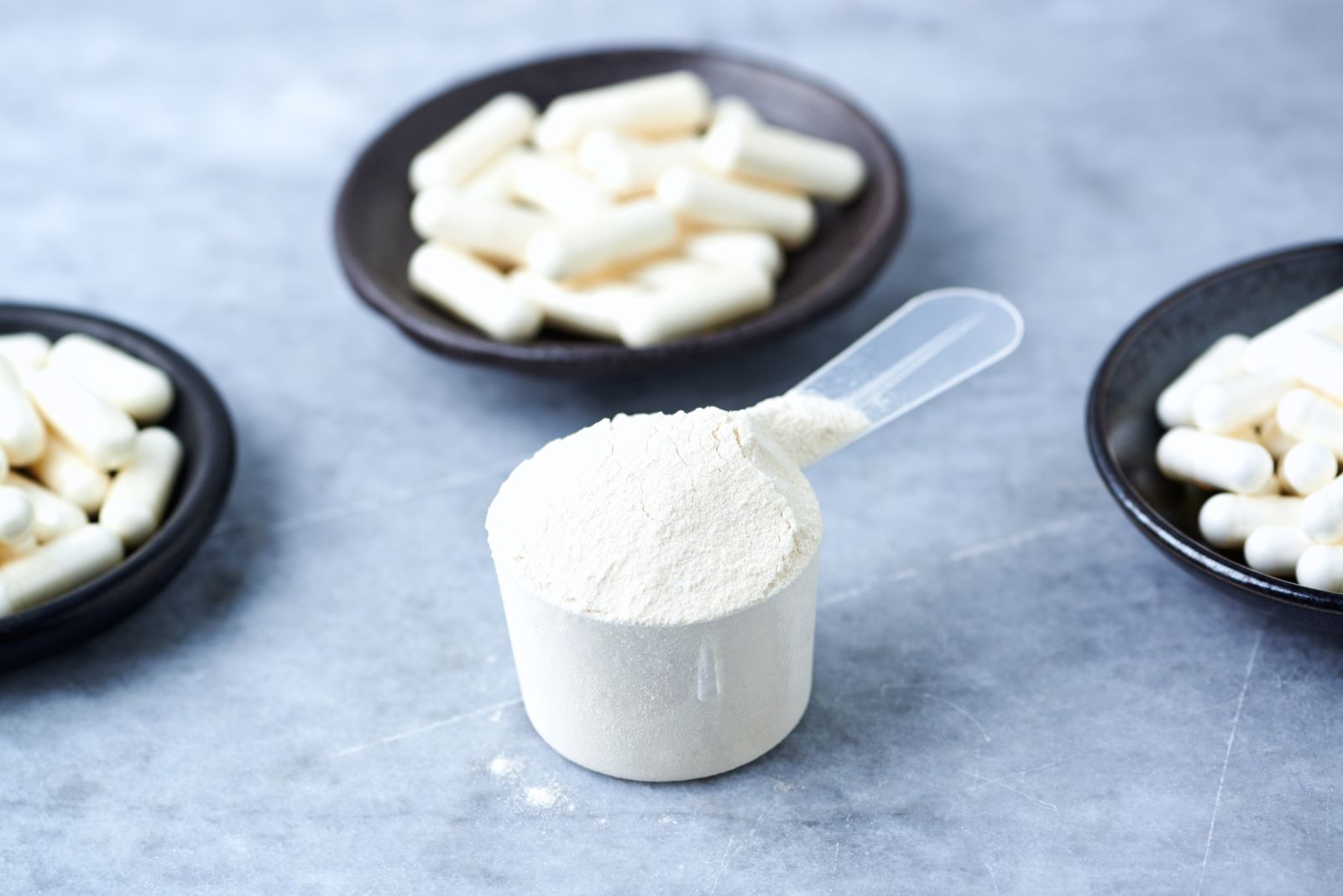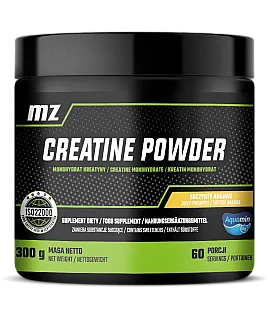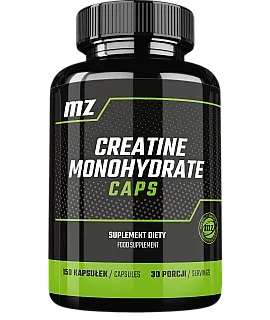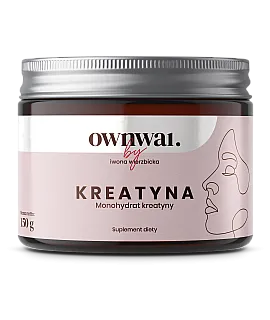Which creatine is best?

Creatine is undoubtedly one of the most widely used dietary supplements by professional and amateur athletes to develop muscle mass and strength. Taking creatine allows many people to improve athletic performance in a variety of sports and gain muscle mass, as well as speed up recovery from injury. Creatine is considered the most effective and also the safest dietary supplement for amateur and competitive athletes.
Creatine - what does it give?
Long-term creatine supplementation increases the concentration of creatine in skeletal muscles, which increases the body's ability to rapidly resynthesize adenosine triphosphate (ATP), the compound that is the primary source of energy during muscle contraction. Creatine improves athletic performance, especially in short-term, high-intensity exercise, as well as enhances the body's adaptation to increased exercise loads. The greatest benefits of long-term use of creatine are particularly evident in athletes performing high-intensity exercises whose total duration does not exceed 30 seconds (e.g., those training for Olympic doubles, power triathlon, bodybuilding, or short-distance sprint running).
Extensive professional literature unequivocally indicates that regular creatine supplementation in gym-goers yields not only an increase in muscle strength and power, but also muscle mass. The increase in lean body mass after creatine supplementation is attributed, at least in part, to water retention in muscle tissue. It has been suggested that higher osmotic pressure, following an increase in intramuscular creatine stores, causes muscle cell swelling, which is thought to be a key stimulus for cellular growth.
Scientific reports in recent years also indicate that regular use of creatine improves cognitive abilities and neuromuscular function, suppresses feelings of fatigue, promotes musculoskeletal health and prevents the onset of severe symptoms of traumatic brain injury.
Creatine - which is the best?
Various forms of creatine are currently available on the dietary supplement market, the right combination of which is sometimes even found in a single product, well known as a "creatine stack." Of all the forms of creatine available on the market, monohydrate remains the most effective, best studied and also the cheapest form of creatine. There is no convincing scientific evidence to support the superiority of any other form of creatine (e.g., creatine malate, creatine citrate, or creatine ethyl ester) in terms of effectiveness and increasing creatine stores in skeletal muscle. What's more, the new forms of creatine, in addition to having a higher price tag, also have a lower percentage of creatine compared to monohydrate (this is illustrated in detail in the table below). This therefore means that higher doses of supplements containing the new forms of creatine must be taken compared to monohydrate, which translates into higher monthly supplementation costs.
| Form of creatine | Creatine content (%) |
| Creatine anhydrous | 100,0 % |
| Creatine monohydrate | 87,9 % |
| Creatine ethyl ester | 82,4 % |
| Creatine malate (3:1) | 74,7 % |
| Creatine methyl ester hydrochloride | 72,2 % |
| Creatine malate (2:1) | 66,0 % |
| Creatine citrate (3:1) | 66,0 % |
| Creatine pyruvate | 60,0 % |
| Creatine alpha-ketoglutarate | 53,8 % |
| Creatine gluconate | 40,2 % |
Creatine - side effects
Many people wonder whether creatine causes unwanted side effects. This is a question that particularly concerns parents of teenagers interested in bodybuilding and strength sports. Current short- and long-term studies show that the use of creatine (up to 30 grams per day for a period of 5 years) is completely safe for human health, and creatine itself is well tolerated by healthy people, regardless of age. It is worth noting explicitly that studies to date have found no serious side effects from regular creatine intake. Both short- and long-term use of creatine in the recommended doses (3 to 5 g per day) does not pose any health risks. Nevertheless, not everyone should reach for creatine-containing supplements. Among the main contraindications to creatine supplementation, are:
- kidney disease (especially chronic kidney failure),
- arterial hypertension,
- advanced diabetes,
- liver disease.
Sources:
- Harmon KK, Stout JR, Fukuda DH, et al: The Application of Creatine Supplementation in Medical Rehabilitation. Nutrients. 2021 May 27;13(6):1825.
- Kreider RB, Kalman DS, Antonio J, et al: International Society of Sports Nutrition position stand: safety and efficacy of creatine supplementation in exercise, sport, and medicine. J Int Soc Sports Nutr. 2017 Jun 13;14:18.
- Jagim AR, Kerksick CM: Creatine Supplementation in Children and Adolescents. Nutrients. 2021 Feb 18;13(2):664.
- Forbes SC, Cordingley DM, Cornish SM, et al: Effects of Creatine Supplementation on Brain Function and Health. Nutrients. 2022 Feb 22;14(5):921.
- Wu SH, Chen KL, Hsu C, et al: Creatine Supplementation for Muscle Growth: A Scoping Review of Randomized Clinical Trials from 2012 to 2021. Nutrients. 2022 Mar 16;14(6):1255.
 ⮜ Previous article
⮜ Previous article
What is overthinking?
 Next article ⮞
Next article ⮞


